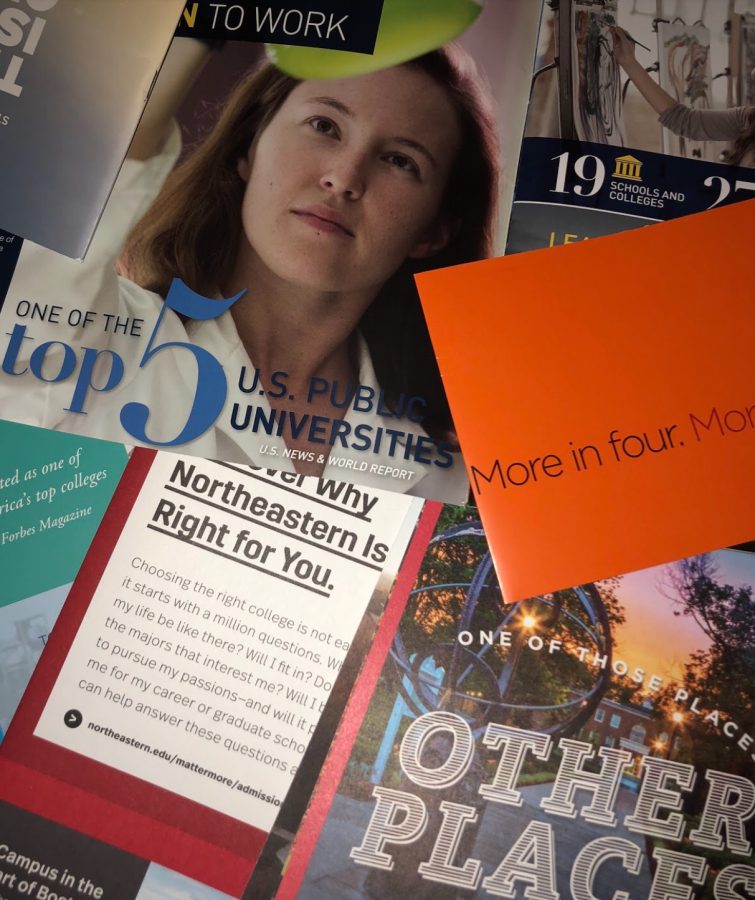College shaming: hurtful and heartbreaking
My hands tremble as I hesitantly click the email titled “Your decision has been made.” I am overcome with nerves, anxious for what lies in the document. Will I be accepted to one of my top schools or rejected? I take a deep breath in, and find pure elation after reading the words “Congratulations!” My excitement catches the attention of some of my classmates, most of whom congratulate me. Amidst the best wishes, however, is a single voice that says, “That’s one of your top schools? I got in there so fast, it’s not even that great of a school.” Within seconds, my happiness dissipates and leaves a lingering shame.
College rank and supposed “prestige” completely ruin the nerve-wrecking, exciting time of the college admissions process. “University shaming” is a new term for the longstanding practice of humiliating others for their college choices based on socioeconomic standing and college ranking. This practice plagues high schools every year, and Mercy is certainly not immune. “University shaming” should not be a thing and people shouldn’t remark on others’ college choices negatively.
According to the National Association for College Admissions Counseling, out of 2,200 college counselors surveyed, almost half agree that college ranking is not reflective of the school and is not a dependable way to choose a college. Furthermore, rankings are often an accumulation of all departments within the college, so for example, whatever one college lacks in the science department, it makes up for in its strong communications department. Thus, different universities cater to specific majors and needs and are uniquely better to specific individuals. Of course, no two people are looking for the same academic path, so how can one shame another for choosing a college that better caters to what she wants?
Comfort is key in choosing colleges as well. While some crave an urban, bustling landscape, others embrace a quiet, rural atmosphere. Some want to attend a big university, others a small college. Out of state may be enticing for some, and an hour from home might be just perfect for someone else. Everyone has different criteria for comfort, and comparing them in terms ofwhich university is more prestigious and ‘better’ is ludicrous. Harvard Graduate School of Education’s Making Caring Common Project’s The Turning of the Tide report says that students who value comfort over prestige lead more successful careers out of school.
Whether it is a passive comment or a blatant attempt to boost your own ego, be more aware of what you say to others about their college acceptance decisions in order to spare hurt feelings and discomfort. Everyone wants something different, so who are you to decide what is bad and what is good for someone else’s next four years of school?

